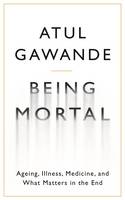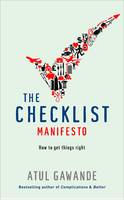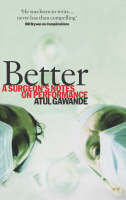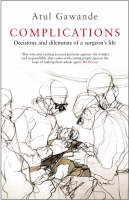Atul Gawande is a surgeon, writer, and public health researcher. His Auckland Writers Festival session was sold out, and I can see why. He explains the most important stuff about life, and does it in an interesting and engaging way.
His latest book Being Mortal looks at "the realities of aging and dying in his patients and in his family" (his father had a brain tumour). It has been a bestseller, surprising Gawande who thought its release in the holiday season might not make it an obvious pick:
Who is going to buy a book called Being Mortal for their Dad?
Atul talked about end of life priorities. The medical system works to preserve life at all cost, and yet people's priorities aren't necessarily living longer. He talked about a longrange medical study which revealed that older people may have disabilities and bad health, but they are often happier than the young. Older people can also have a sense of poignancy about life. The medical profession needs to be aware of people's needs and desires in life:
Our duty is bigger than health.
The care of the elderly has a strong emphasis on safety - resthomes are selling to adult children rather than the aged, who are more concerned about having freedom and autonomy:
Safety is what we want for those we love; autonomy is what we want for ourselves.
Atul talked more about the hard conversations around the end of life, and that those discussions are a process and not an epiphany. Doctors should be talking less than 50% of the time. These are conversations that count:
70% of us will die with someone else making the core decisions.
A question from the audience about The Checklist Manifesto took us right to what is happening in medicine today. Auckland is one of the eight cities in the world that use this system. It has been enormously successful - the use of a checklist has led a 47% reduction of deaths in surgery. A childbirth checklist is being devised for use in Northern India.
Atul is about medicine, but very much about people.
- Find Atul Gawande’s work in our catalogue.
- How do we heal medicine? Atul's TED Talk.
- AWF15: Atul Gawande interviewed by David Galler Jillian Ewart, Booksellers New Zealand blog
- Atul Gawande's work in The New Yorker.
- Read our posts from the Auckland Writers Festival.








Add a comment to: What matters – Atul Gawande